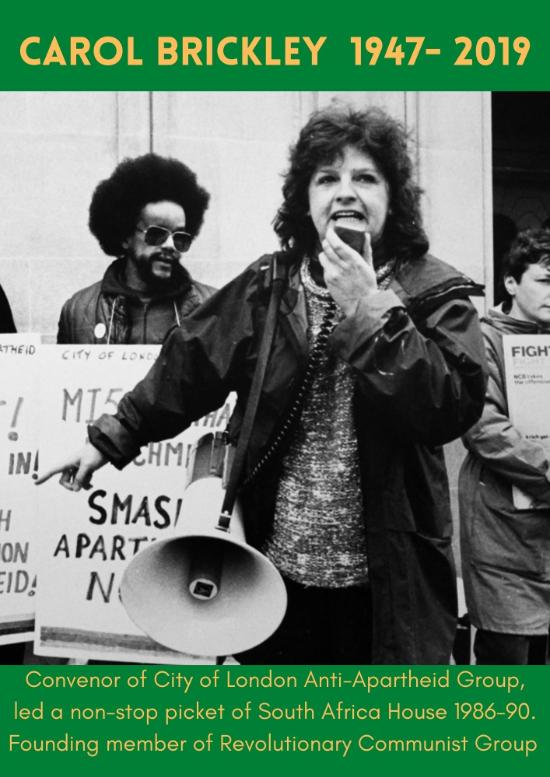Louise Michel 1830-1905
Louise Michel was a French revolutionary and important figure in the Paris Commune, the working-class insurrection which seized and ruled Paris for three months in 1871 and, in the words of Karl Marx, ‘stormed heaven’ as it set about creating the first workers’ state.
Michel was born in 1830, the illegitimate daughter of a servant in north-eastern France. She trained as an elementary school teacher and travelled to Paris in 1856 where she set up a a school at 5 rue des Cloys that became known for its progressive methods of education. She would later write in her memoirs that ‘the role of schoolteachers… is to give people the intellectual means to rebel’. At this time she also became involved in radical political circles in Paris, and was involved in founding the Demand for Women’s Rights group focusing on improving girls’ education.
In 1871 Paris became under siege during the Franco-Prussian war, and the revolutionary trend within the proletarians of Paris exploded into a working-class insurgency and the establishment of the Paris Commune. The armed proletariat and the working-class who made up a large proportion of the Parisian National Guard refused to surrender its weapons to the French republic. Michel, already a member of the National Guard, threw herself into the revolutionary struggle and became an ambulance nurse and soldier in the Paris Commune. She was elected the head of the Montmartre women’s vigilance committee.
For two months, Michel and the French workers oversaw a program of proletarian democracy in the Commune. Sweeping reforms were made to throw off the yoke of oppression that had been enacted against the proletarians of Paris, including suspension of rents and abolition of debt. The Communards saw the separation of Church and state, allowing for free education for all children, for the first time including girls. The struggle that Michel had devoted her earlier years to was now a reality afforded by the working-class seizure of power. After the two months the French Army came to Paris and brutally slaughtered the Communards, desperate to erase the example of working-class power that threatened the bourgeoisie and ruling class. Michel again threw herself into the front lines, fighting the armed struggle against the vicious repression of the French Republic.
Following the fall of the Paris Commune on 28 May, Michel handed herself over to the authorities in exchange for her mother’s release. She was tried by a military court and still defiantly spoke out in defence of the Commune and her revolutionary principles. She was sentenced to Penal Transportation and deported to New Caledonia, where she became aligned with anarchist politics. In exile, she involved herself in anti-colonial struggles, in 1878 supporting the indigenous Kanak people in their revolt against French colonial rule. For the rest of her life, she continued to defend her principles and politics across Europe, despite serving several jail attempts. She is credited with flying the first anarchist black flag at a demonstration in Paris in 1883.
In recounting the significance of the Paris Commune, Michel later said ‘The Commune, surrounded from every direction, had only death on its horizon. It could only be brave, and it was. And in dying it opened wide the door to the future. That was its destiny.’ More than 100,000 people attended her funeral in 1905. A square in Montmartre, where the uprising began, bears her name.
(see https://www.rfi.fr/en/france/20210318-louise-michel-a-leading-light-and-feminist-figure-in-the-paris-commune and https://www.revolutionarycommunist.org/socialism/6150-the-paris-commune-today)





